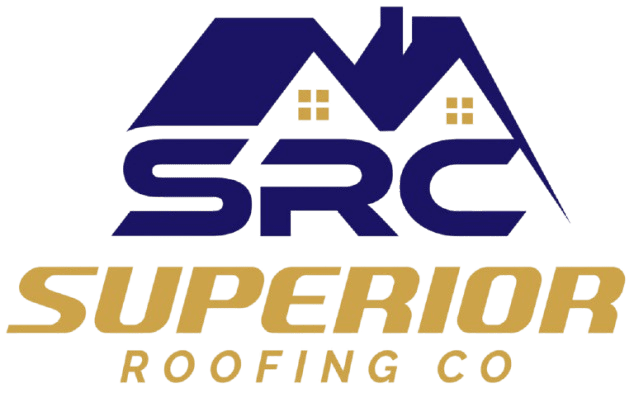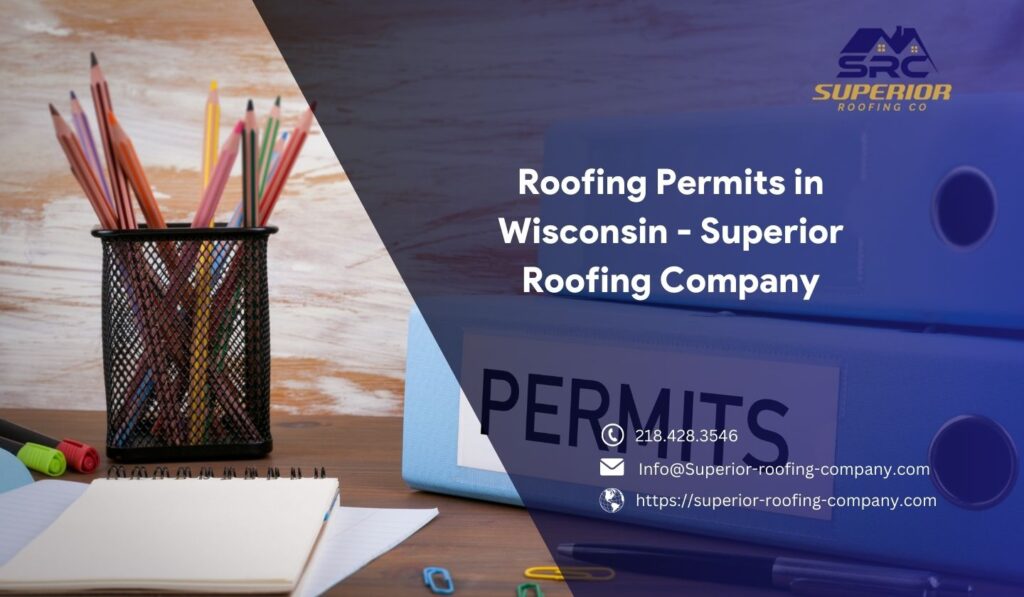For every homeowner in Wisconsin, replacing a roof is a significant investment requiring careful planning and adherence to local regulations. Understanding how to acquire Roofing Permits in Wisconsin is necessary can streamline the process and avoid potential complications down the road. Today, we explore roof replacement permit requirements in for roofing in Wisconsin, ensuring you have the necessary insights for a successful project.
Read Related: Who Provides Emergency Roofing Repairs In Wisconsin?
Does replacing a Roof in Wisconsin Require a Permit?
Considering a roof replacement in Wisconsin? Understanding permit requirements is of the utmost importance. Typically, you will need a permit if the replacement involves structural changes or material alterations. If the replacement uses the same materials and doesn’t alter the structure, a permit might not be necessary.
Specific regulations can vary by location, so consulting local municipal authorities or experienced roofing specialists is advisable to ensure compliance and avoid potential issues during or after the project.
Who Issues Building Permits in Wisconsin?
The Wisconsin Department of Safety and Professional Services (DSPS) oversees building permits in Wisconsin, managing the application process through its online system.
Municipalities in Wisconsin, such as Richland Center and Waupun, issue building permits for residential and commercial projects, ensuring compliance with state laws and local regulations.
Who is Responsible for Pulling Permits in Wisconsin?
Contractors in Wisconsin are required to have Dwelling Contractor Qualifier (DCQ) certification and Dwelling Contractor (DC) certification to pull building permits, as regulated by DSPS. Contractors are typically required to be licensed and insured, and part of their professional obligations includes obtaining all necessary permits before commencing any project. This ensures that the construction complies with local building codes and regulations, maintaining safety and legal standards throughout the process.
Roofing Permit Requirements in Wisconsin
Re-roofing Permit Wisconsin
A re-roofing permit is essential for replacing roofs. The state of Wisconsin mandates a maximum of two layers of shingles per roof. If opting for metal roofing, approval from the Architectural Review Board is mandatory to ensure compliance with local guidelines.
Contractor Credentials Wisconsin
Contractors applying for roofing permits in Wisconsin must possess valid certifications issued by the state. These credentials validate their competence and ensure that all work is executed in accordance with Wisconsin’s stringent standards.
Wisconsin Roofing Regulations
Wisconsin roofing regulations are meticulously crafted to uphold the safety and longevity of roofing projects. These guidelines encompass specific mandates concerning materials, installation techniques, and limitations on the number of shingle layers allowed.
Re-roofing Rules Wisconsin
Adhering to Wisconsin’s re-roofing rules is paramount to avoid penalties and ensure the structural integrity of the roof. These regulations stipulate limitations on shingle layers and mandate specific approvals for certain roofing materials.
Factors Influencing the Need for a Roof Replacement Permit
So, several factors influence whether a permit is necessary:
1. Historical Status
Properties situated within historical districts often have stricter permit requirements to preserve architectural integrity.
2. Compliance
Permits ensure compliance with local ordinances, maintain standards, and mitigate potential legal issues.
3. Warranty Coverage
Certain roofing warranties necessitate permit compliance, ensuring protection, and validating coverage for new installations.
4. Cost Considerations
Specifically, Permit costs, encompassing application fees and inspection expenses, should be included in the overall project budget.
Specific Permit Regulations and the Roof Replacement Permit Process
Navigating the permit process entails several critical steps:
- Building Permit: Obtain one from the building inspector for projects exceeding specified thresholds.
- Permit Fees: Vary by locality and project specifics, covering administrative and inspection costs.
- Application Submission: Complete forms with detailed project plans, adhering to zoning and land use regulations.
- Contractor Credentials: Ensure all involved contractors possess the requisite credentials from Wisconsin’s Division of Industry Services.
How Can You Obtain a Roofing permit in Wisconsin?
To secure a roof replacement permit in Wisconsin, follow these steps:
- Contact Local Authorities: Initiate the permit application process by reaching out to the local building department.
- Explore Online Options: Many municipalities provide online permit submission platforms, simplifying the process.
- Consult with Contractors: Engage experienced contractors familiar with local regulations to facilitate acquiring the permit.
Consequences of Skipping the Roofing Permit Process in Wisconsin
Skipping permits can result in serious repercussions.
- Financial Penalties: Local authorities may impose hefty fines and daily charges.
- Insurance Implications: Unpermitted work might invalidate a homeowner’s insurance, exposing liabilities.
- Safety Risks: Non-compliant structures pose safety hazards, potentially leading to legal consequences and repair expenses.
Read Related: Where Can I Get a Free Roofing Estimate in Wisconsin?
Trusted Guidance for Your Roof Replacement Project
Requirements for Roofing Permits in Wisconsin require informed decision-making and adherence to local guidelines. Partnering with reputable contractors like Superior Roofing Company ensures compliance and quality assurance throughout your project. Contact us at (218) 428-3546 for expert assistance tailored to your roofing needs.

